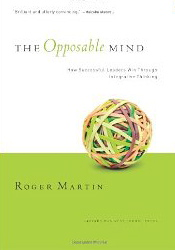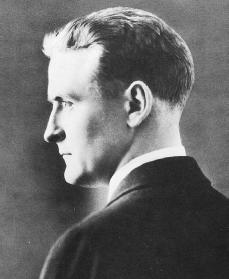 How often do you find yourself confronted by a situation where you have to make a choice, and none of the options under consideration seems to be a perfect fit for your current needs or desires? It happens all of the time.
How often do you find yourself confronted by a situation where you have to make a choice, and none of the options under consideration seems to be a perfect fit for your current needs or desires? It happens all of the time.
Examples abound, and we need look no further than the disturbing political three-ring circus that took place in the US Congress this summer, where the main act in the center ring was the debt ceiling, with deficit reduction and tax cuts running as part of the sideshow. Partisan argument for absolutist positions made compromise a dirty word, and while last minute maneuvering avoided the “crisis,” the whole negotiation process was an embarrassment for American democracy.
 Margaret Heffernan wrote an interesting article for BNET last month, titled “Do Tough Decisions Require Making Trade-Offs?” Heffernan argues that the conventional wisdom about trade-offs – where compromise is always necessary and realists have an advantage in accepting this — is often wrong, sometimes dangerously wrong. She cites the excellent book, “The Opposable Mind,” by Roger Martin, dean at the Rotman School of Management at the University of Toronto, wherein Martin explores the skill of brilliant leaders that he calls integrative thinking, which he defines as:
Margaret Heffernan wrote an interesting article for BNET last month, titled “Do Tough Decisions Require Making Trade-Offs?” Heffernan argues that the conventional wisdom about trade-offs – where compromise is always necessary and realists have an advantage in accepting this — is often wrong, sometimes dangerously wrong. She cites the excellent book, “The Opposable Mind,” by Roger Martin, dean at the Rotman School of Management at the University of Toronto, wherein Martin explores the skill of brilliant leaders that he calls integrative thinking, which he defines as:
“…the ability to hold two opposing ideas in their mind at once, and then reach a synthesis that contains elements of both but actually improves on each.”
 Martin is certainly not the first person to consider this concept. F. Scott Fitzgerald wrote in “The Crack-Up” originally published in Esquire magazine seventy-five years ago:
Martin is certainly not the first person to consider this concept. F. Scott Fitzgerald wrote in “The Crack-Up” originally published in Esquire magazine seventy-five years ago:
“The test of a first-rate intelligence is the ability to hold two opposing ideas in mind at the same time and still retain the ability to function. One should, for example, be able to see that things are hopeless yet be determined to make them otherwise.”
Martin, however, unlike Fitzgerald, doesn’t limit integrative thinking to those few of us fortunate enough to have a “first-rate intelligence.” He considers integrative thinking a skill that can be learned through practice and experience, with perhaps the key ingredient being the willingness to examine the way we think about the choices and decisions we make. We have to be willing to reflect on what we do, and more importantly why we do what we do. It’s a practice that flies in the face of the all-too-human tendency to simply think, then do, and then forget about it while we head off to think-and-do all over again.
To break out of this trap, you have to think about how you think. When confronted with a situation where you have to “decide,” where do you focus first? If you look within, to your own beliefs and values, you may have learned to trust them so much that you get an answer from within yourself, and then stop looking. That’s likely a fast road to failure. It’s important to learn to trust yourself; but not so much that you don’t look outside yourself for answers. Test, check, examine, validate, and above all reflect on what you’re thinking before you jump into action.
In any given situation, try asking yourself some of these questions to see if they help shed light, or lead to new ways of thinking about old issues:
- Who are the players?
- What do they bring to the table?
- Where are the conflicts?
- What are the consequences? How critical are they?
- What if…?
- Why not…?
 If all of this starts to feel like you’re on some kind of mental carnival spinning-wheel ride, follow the advice one of my first managers offered as guidance when faced with a very tough decision: call triple-A. Not the AAA synonymous with roadside assistance , but the three keys for coping with disequilibrium
If all of this starts to feel like you’re on some kind of mental carnival spinning-wheel ride, follow the advice one of my first managers offered as guidance when faced with a very tough decision: call triple-A. Not the AAA synonymous with roadside assistance , but the three keys for coping with disequilibrium
- Awareness – knowing what you know and, as important, what you don’t know about the situation;
- Acknowledgement – recognizing that making good decisions is difficult, and the one you are about to make may be less than perfect; and
- Adaptation – taking the best that the situation offers, using all available resources to make the best decision possible.
With all of the seemingly intractable problems facing us today, it’s certainly worth the effort to try to think differently, to refuse to settle for the mediocrity that usually accompanies compromises and trade-offs.